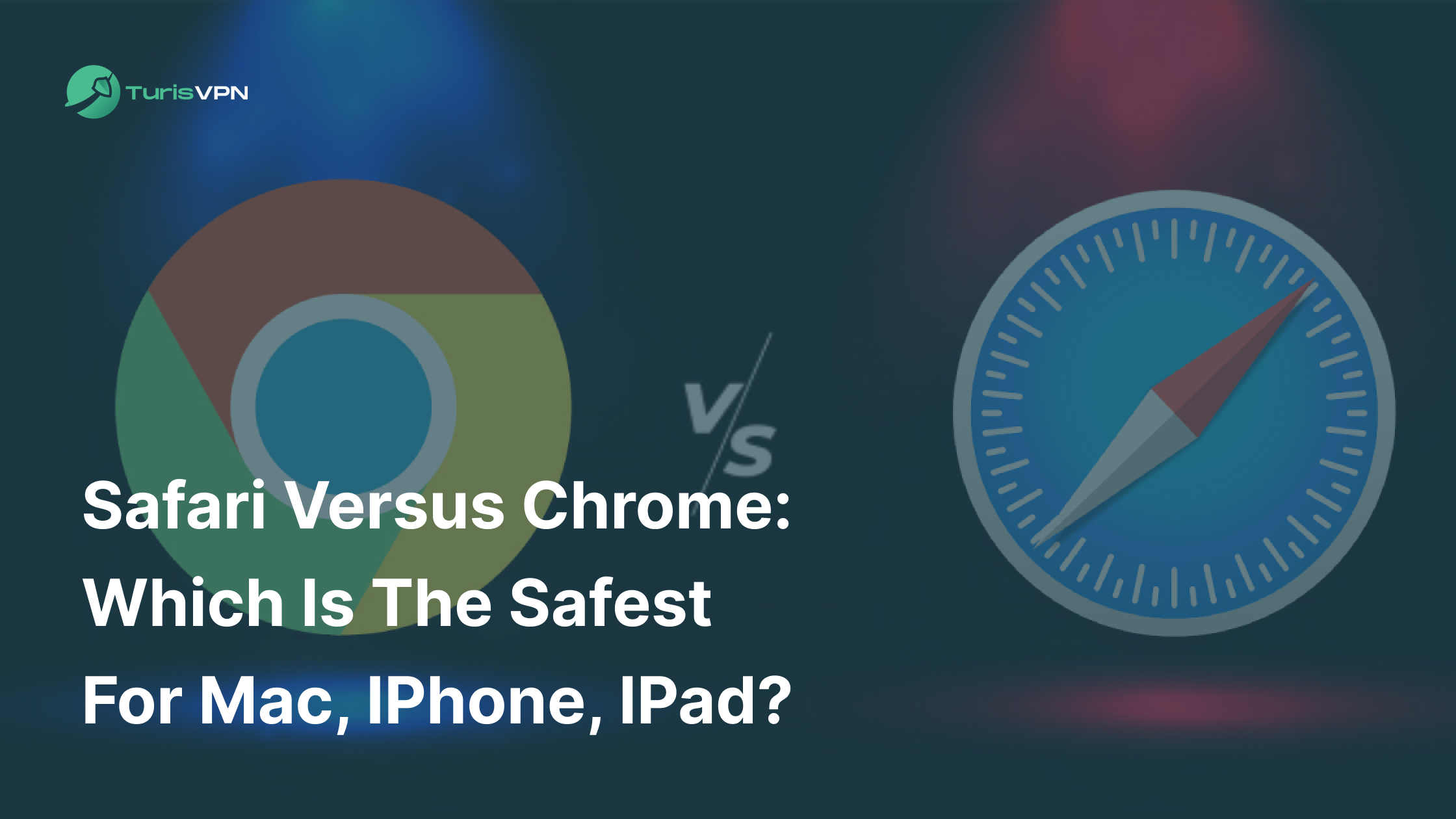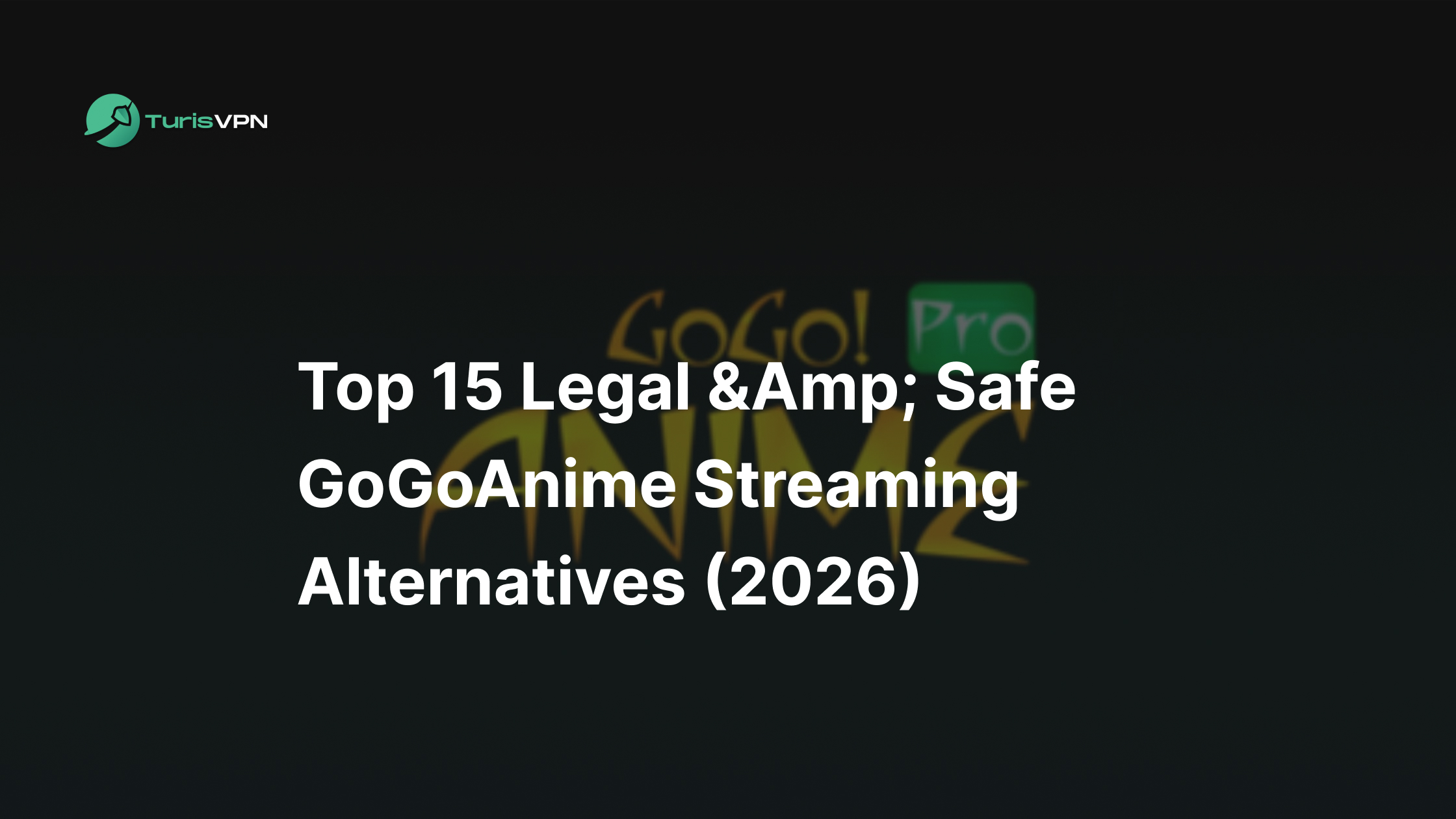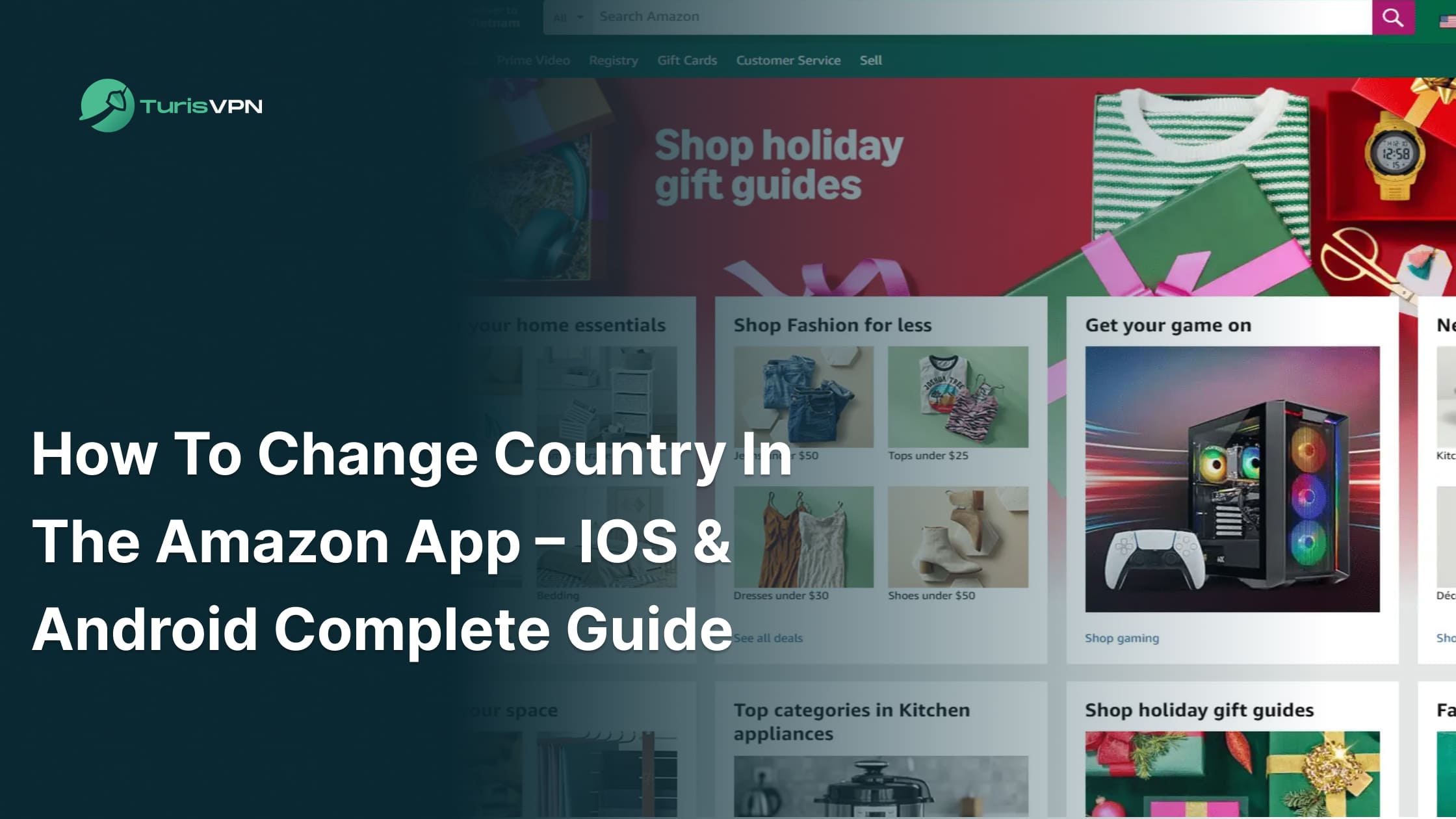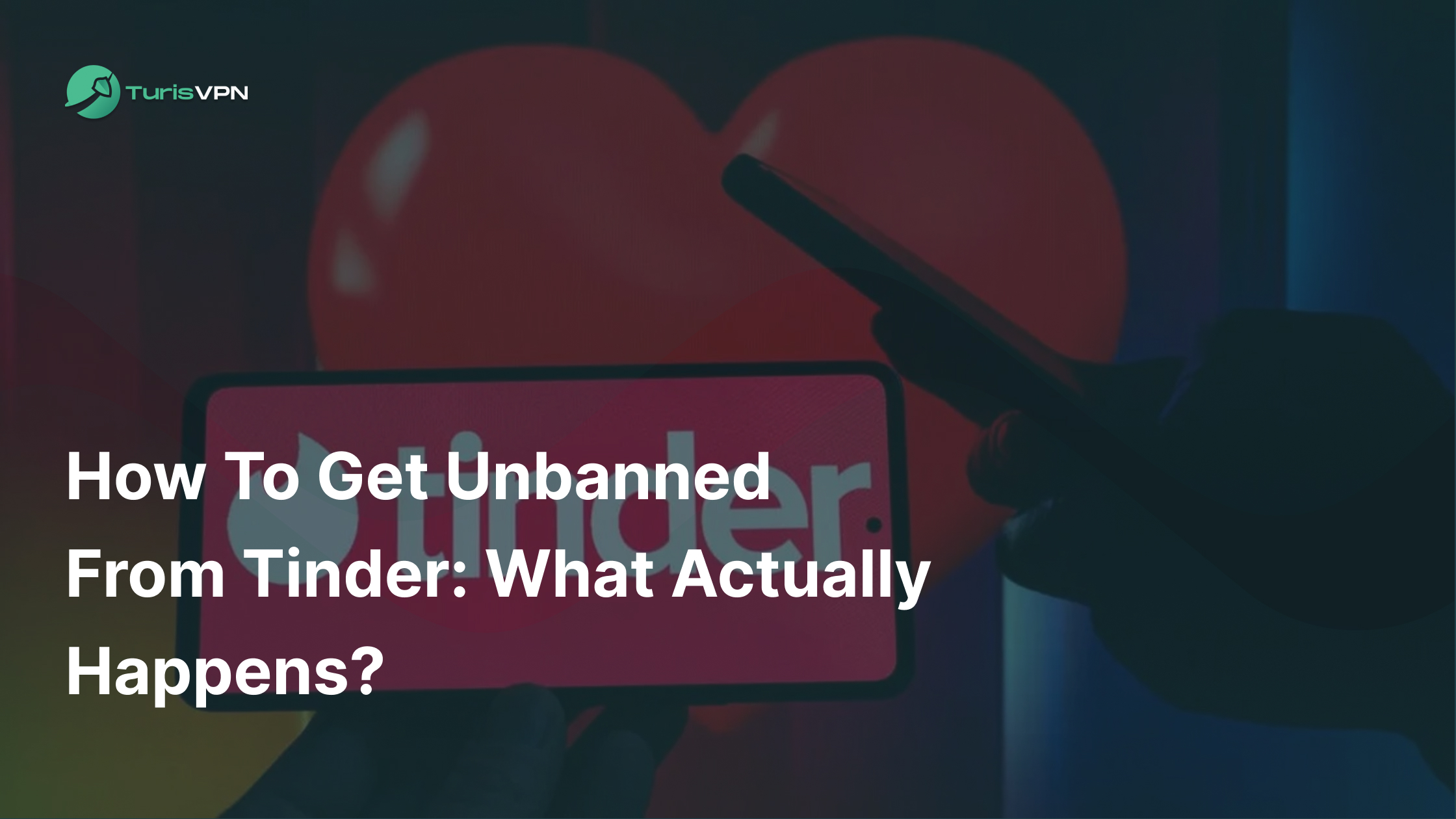In today’s world, choosing the right web browser is very important. Safari and Chrome are two of the most popular browsers. Most Mac users prefer Safari because it’s fast, secure, and already installed on every Mac. Chrome is also popular for its speed and customization options.
Both browsers have their strengths, but which one is safer for your Mac, iPhone, and iPad? Let’s compare Safari versus Chrome, look at their key security features, and benefits of each to help you decide.
Key Takeaways
- Safari and Chrome are both secure browsers, but Safari offers better integration with iCloud Keychain for enhanced security.
- Safari uses less RAM than Chrome, providing better battery life on Macs.
- Chrome has a larger library of extensions, while Safari’s extensions are more secure due to stricter rules.
- Using Chrome or Safari without a VPN can expose your online activities to your ISP and other third parties.
- Choosing TurisVPN with strong encryption and broad server availability is essential for protecting your online activities.
5 Key Differences Between Chrome vs. Safari for Mac, iPhone and iPad
Google Chrome was developed by Google and released in 2008, quickly becoming the most popular web browser in the world with a current market share of 65%.
Apple developed Safari and released it in 2003. The latest version of Safari is exclusive to Apple devices. Now, let’s compare these two browsers to see which one is better for your Mac, iPhone, and iPad.
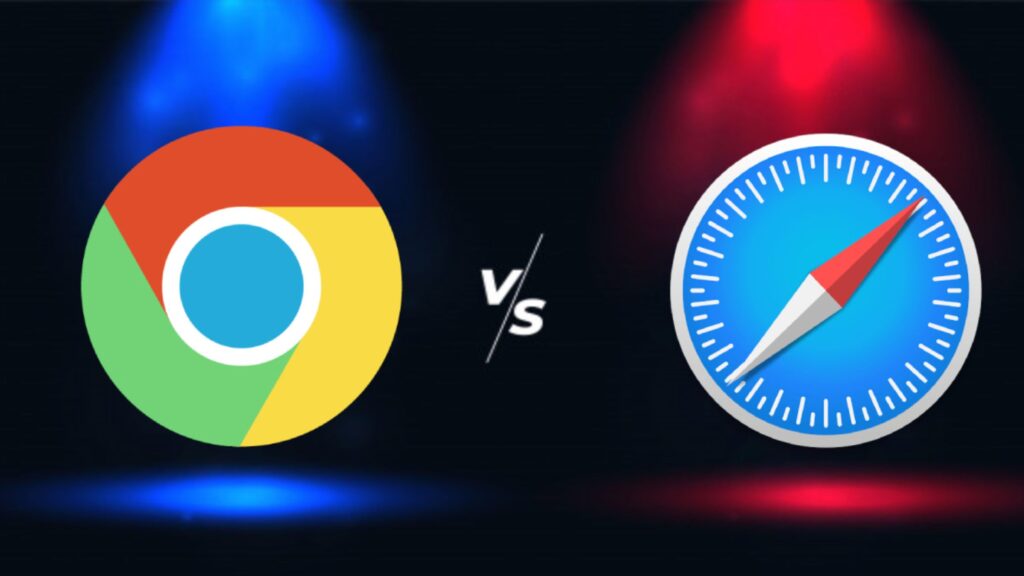
1. Security and Privacy
Both Safari and Chrome are secure, but Safari usually wins here. Chrome updates its security every 2-3 weeks but still had 8 serious security issues in 2023.
Safari doesn’t share its update schedule but fixes problems quickly. Safari’s password management works well with iCloud Keychain, making it very secure. Chrome has more security extensions, but Safari’s strict rules make it safer overall.
🎯Verdict
In the end, both Safari and Chrome are secure, but Safari is the better choice. Chrome updates often but has had some serious issues in 2023. Safari fixes problems quickly and works well with iCloud Keychain. Its strict security rules make it safer overall.
2. Performance and Speed
Safari uses less RAM than Chrome, which makes it better for battery life on Macs. Chrome has features like Memory Saver to help performance, but it can still use a lot of resources.
While Chrome is known for its speed, the difference is small. Safari is optimized for Apple devices, making it smooth and efficient.
🎯Verdict
Safari is the best choice for Mac users. It uses less RAM, so your battery lasts longer. Chrome has features to help, but it still uses more resources. Safari is made for Apple devices, so it runs smoothly. Chrome is a bit faster, but the difference is small. For better battery life and a smooth performance, Safari wins.
3. Extensions Support
Chrome has many extensions for customization and extra features. Safari has fewer extensions because of its strict rules. This means Safari’s extensions are more secure, but Chrome offers more options.
🎯Verdict
Both Chrome and Safari have their strengths. Chrome wins with its wide range of extensions, giving you more options to customize your browser. However, Safari’s strict rules mean its extensions are more secure. If you value more choices and flexibility, Chrome is the winner. If you prioritize security, Safari is the better choice.
4. User Interface
Chrome has a simple, clean design that many people like. Safari’s interface is more customizable, especially on Apple devices. Safari’s new tab management features, like webpage previews, make it easier to use.
🎯Verdict
If you value a simple and clean design, Chrome is a great choice. However, if you prefer more customization and advanced tab management, especially on Apple devices, Safari might be better for you. Overall, for ease of use and flexibility, Safari edges out as the winner.
5. Other Features
- Reading Mode: Both browsers have a reading mode, but Safari’s is easier to use and provides a cleaner reading experience.
- Voice Search: Chrome uses Google Assistant for voice search, which is great for web searches. Safari uses Siri, which can do more tasks beyond web searches.
- Translations: Chrome works well with Google Translate, making it easy to translate webpages. Safari’s translation feature is less obvious and needs more effort.
- Auto Fill: Safari’s integration with iCloud Keychain makes autofill smooth, especially if you use other Apple services.
- Profiles: Chrome has allowed profiles for a while, but Safari recently added this feature, making it easier to manage different browsing activities.
Verdict
Both Chrome and Safari have great features, but overall, Chrome edges out Safari with its more robust features and better integration for web searches and translations.
This table below provides a quick overview of the main differences between Chrome vs. Safari:
| Feature | Chrome | Safari |
| Developer | Apple | |
| Release Year | 2008 | 2003 |
| Security Updates | Every 2-3 weeks, but had 8 serious issues in 2023 | Rapid Security Response, but less transparent |
| Password Management | Extensive security extensions | Integrated with iCloud Keychain |
| RAM Usage | Higher, but has Memory Saver mode | Lower, optimized for battery life |
| Extension Support | Large library of extensions | Fewer, but more secure extensions |
| User Interface | Clean, minimalist design | Customizable, optimized for Apple devices |
| Reading Mode | Available, but less user-friendly | Easy to use, clean reading experience |
| Voice Search | Google Assistant integration | Siri integration |
| Translations | Integrated with Google Translate | Less obvious, more user effort needed |
| Auto Fill | Built-in manager | Integrated with iCloud Keychain |
| Profiles | Supports profiles via Google accounts | Recently added, managed through Apple ID |
Risks when Using Safari vs. Chrome Browsers
Google Chrome is one of the most popular web browsers in the world, used by millions of people every day. Between July and August 2023, Chrome was used by 63.6% of internet users worldwide.
Safari ranked in second place, used by just under 20% of the online community. However, using these browsers without a VPN (Virtual Private Network) can leave users vulnerable to various online threats.

Privacy Threats
Without a VPN, your online activities on Chrome are visible to your ISP (Internet Service Provider) and potentially other third parties. This means your browsing history, online purchases, and other sensitive information can be tracked and monitored.
Safari, despite its security features, is not exempt from this risk. Third parties can still see your IP address and snoop on your browsing habits.
Cyberattacks
Chrome users are at risk of cyberattacks, including malware, phishing scams, and identity theft. Without a VPN, your personal information, like passwords and credit card details, can be intercepted by cybercriminals.
Safari users also face these risks. Although Safari has robust security measures, it’s not immune to sophisticated cyber threats.
Geo-restrictions
Many websites and online services are geo-restricted, meaning they are only available in certain countries. Without a VPN, you may not be able to access these sites or services if you are outside the specified geographic location. Both Chrome vs. Safari users can face these limitations.
Even though Safari might be better for security compared to Chrome, neither browser is 100% secure. To enhance your online security and privacy, using a VPN is essential. A VPN masks your IP address, encrypts your internet connection, and helps protect your data from being tracked or intercepted.
VPN for Safari: How to Choose and Get One ?
The Safari browser doesn’t have a built-in VPN. To encrypt your browsing traffic, you’ll need to purchase a third-party VPN service compatible with macOS and iOS. A VPN routes your Safari and all internet traffic on your device through secure tunnels, making it hard for hackers to intercept.
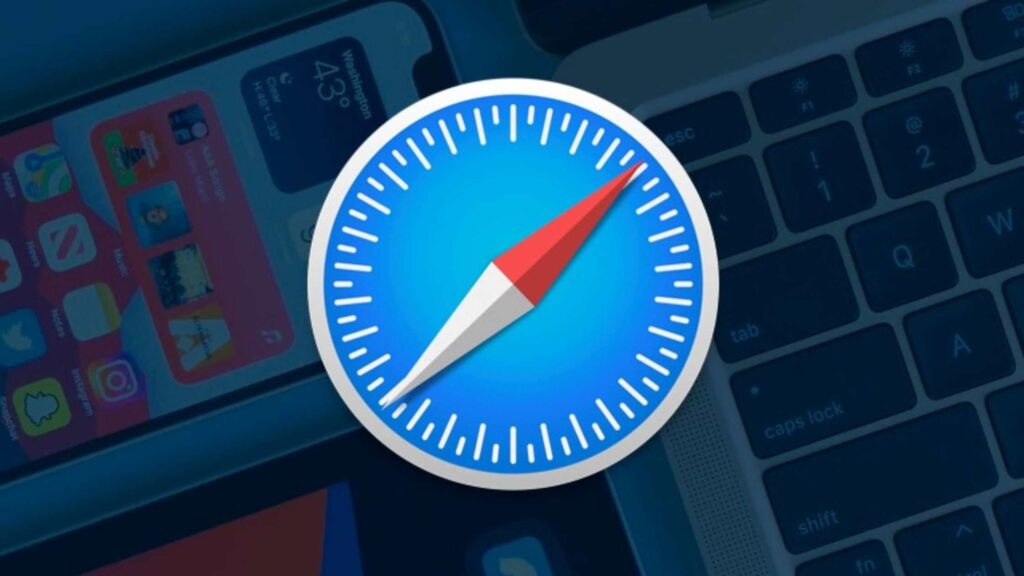
How to Choose a VPN for Safari
- Compatibility: Ensure the VPN works with Apple devices like Mac, iPhone, and iPad.
- Trustworthiness: Pick a VPN provider with good customer reviews and a strong no-logs policy to protect your privacy.
- Encryption: Your VPN should use top-tier encryption technology, which is approved by cybersecurity experts, to secure your Safari activity.
- Server Availability: Check the number of servers the VPN offers. More servers mean better performance and more options for bypassing geo-restrictions.
- Protocols: Ensure your VPN uses trusted protocols like IKEv2, IPSec, or L2TP for data transmission.
How to Set Up a VPN for macOS
- Go to the Apple menu and select “System Settings.“
- Click “VPN” in the sidebar.
- Choose “VPN Configuration” and select the type of VPN connection you want to set up.
- Enter the name of your new VPN connection in the “Display Name” field.
- Choose “Default Configuration” if you don’t need a custom setup.
- Enter the server address, account name, password, and authentication method.
- Click “Create” and then connect to the VPN.
How to Set Up a VPN for iOS
- Open “Settings.”
- Select “General.”
- Tap “VPN and Device Management.”
- Tap “VPN.”
- Hit “Add VPN Configuration.”
- Choose a VPN protocol by tapping “Type” and select IKEv2, IPSec, or L2TP.
- Enter the “Description,” “Server,” and “Remote ID.”
- Under “Authentication,” enter your username and password.
- Tap “Done.”
VPN for Chrome: How to Download Chrome Extension
A VPN extension for Google Chrome is software that integrates with your browser to provide extra features, like data encryption. Since Google Chrome doesn’t come with its own VPN, you need to download a VPN extension to protect your browsing.

How to Set Up a VPN for Chrome
- First, download and install the VPN app on your computer. Make sure the VPN service you choose offers a Chrome extension.
- Go to the Chrome Web Store.
- Search for your chosen VPN extension, like TurisVPN.
- Click “Add to Chrome” and then “Add Extension” to install it.
Activate the VPN:
- Open the VPN extension in Chrome.
- Choose a VPN server location from the list.
- Click the “On” button to activate the VPN
Once connected, your browsing data will be encrypted, providing enhanced security and privacy.
Bottom Line
Using Safari versus Chrome without a VPN can leave you open to many online threats, like cyberattacks and privacy issues.
TurisVPN Chrome extension is a great tool to protect yourself from these dangers. It provides encryption, masks your IP address, lets you access geo-restricted content, and offers automatic protection. Adding the TurisVPN Chrome extension helps you enjoy a fast, secure, and private internet experience.
